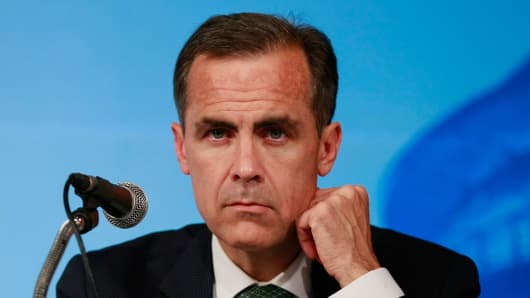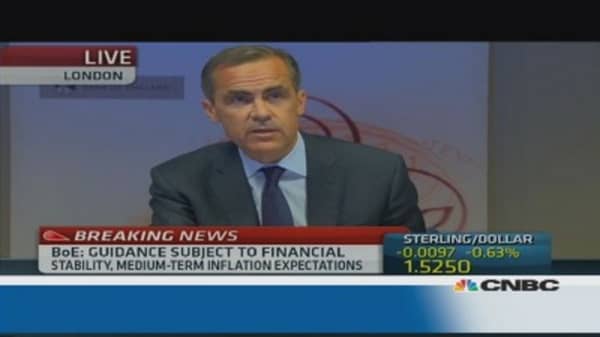Mark Carney, the governor of the Bank of England (BoE), followed in the Federal Reserve's footsteps on Wednesday by linking the outlook for interest rates to unemployment, but experts are unconvinced of the advantages of his new plans.
Carney opted to keep stimulus options open, acknowledging that while the U.K. recovery was clearly underway, it was still very fragile. Speaking at a press conference, he said the central bank would not raise interest rates above the current level of 0.5 percent before unemployment had fallen to a 7 percent or lower. Unemployment stood at 7.8 percent between March and May, according to official estimates.
After his announcement, Carney faced criticism for what some described as an "interesting experiment". Other said that in adding caveats to his commitment to keep rates low, Carney had delivered "forward guidance-lite".
(Read more: Carney unveils Fed-style forward guidance)
"Is Carney a banker or a lawyer?" asked Kathleen Brooks, research director at Forex.com. "He couched the announcement on forward guidance with an economic threshold with so many escape clauses it sounded more like he was reading a disclaimer," she said.




